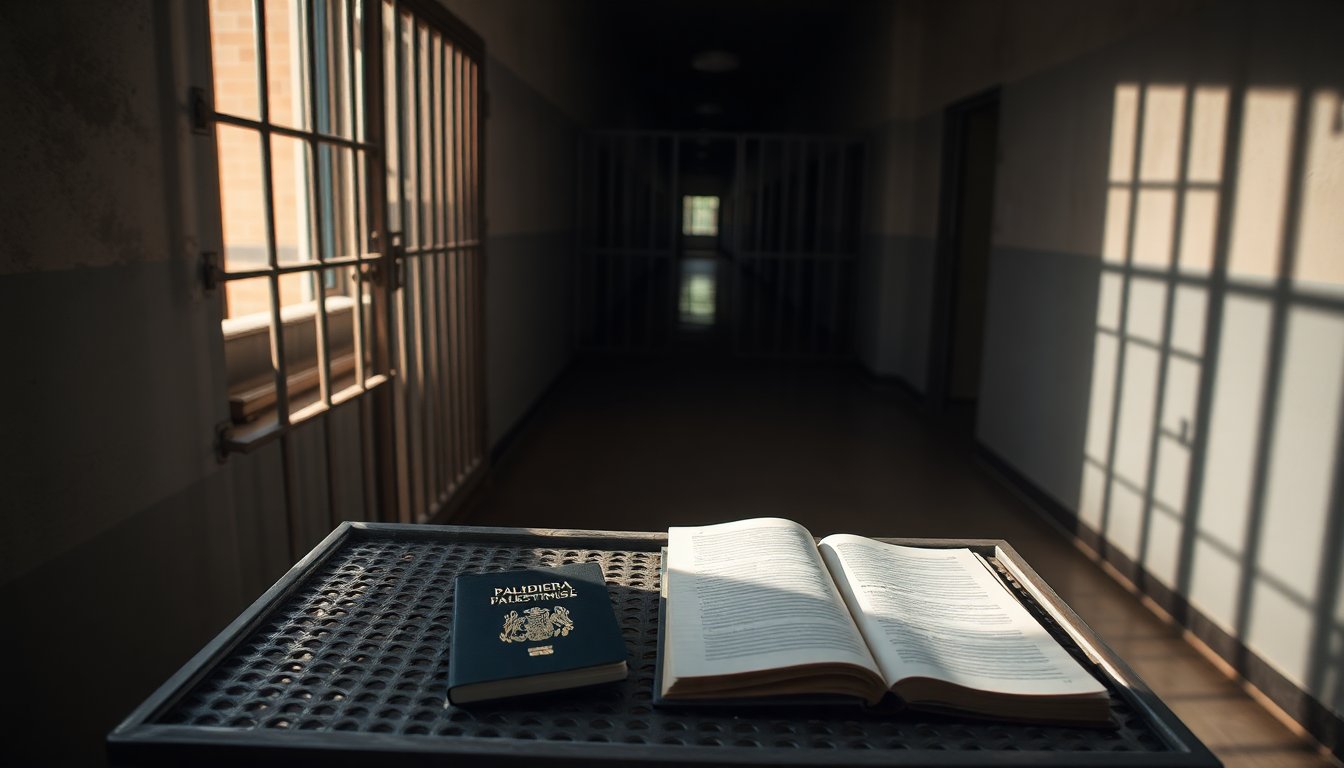Table of Contents
The story of a Palestinian refugee in ICE detention highlights the complexities of statehood and the harsh realities faced by many seeking asylum. Recently, ten nations have recognized Palestinian sovereignty, increasing the total number of UN member states acknowledging Palestine to 157. Despite this substantial international recognition, Palestinians continue to endure the harsh conditions of statelessness, particularly in immigration detention centers.
As a professional interpreter for asylum seekers, I have witnessed the challenges faced by individuals navigating the intricate U.S. immigration system. One such individual, Mohammad (a pseudonym), illustrates the absurdity of his situation through his difficult journey.
From Gaza to the U.S.: The journey of a refugee
Mohammad fled Gaza amid an escalating military conflict. His aim was to escape violence and find safety, yet he faced a series of harrowing experiences that intensified his suffering. After a perilous journey through several countries, many of which did not acknowledge his Palestinian identity or the documents he possessed, Mohammad fell victim to criminal elements, confronting threats, violence, and resource depletion.
Upon reaching the United States, Mohammad hoped he had found a sanctuary to rebuild his life. However, he soon realized that the reality of the U.S. immigration system was far from welcoming. Rather than experiencing freedom, he was confined in ICE detention, effectively exchanging one prison for another.
The reality of detention
Conditions in Immigration and Customs Enforcement (ICE) facilities are often criticized for being harsh and dehumanizing. In an effort to gain recognition and assert his dignity, Mohammad initiated a hunger strike, using his body as a form of protest. This act represented more than just a refusal to eat; it served as a powerful statement against the erasure of his identity and existence. His hunger strike became a physical representation of his demand for freedom, yet it resulted in further humiliation, solitary confinement, and psychological distress.
Confronted with a court ruling that required him to demonstrate mental stability for potential release, Mohammad ultimately felt compelled to end his protest. The court’s apparent indifference to his situation transformed his quest for dignity into a continued cycle of punishment.
The implications of deportation
When faced with a critical decision regarding his future, the court presented him with a troubling option: deportation. However, the lingering question was where he would be sent. The official documentation listed “Palestine,” a term that signifies his identity but is largely disregarded by U.S. immigration authorities. As the United States does not recognize Palestine as a sovereign entity, the default destination became “Israel,” a nation that enforces stringent restrictions on the movement of Palestinians.
For many Palestinians, particularly those from Gaza, borders signify not just geographical separations but also significant obstacles filled with bureaucratic complexities. Although some may propose alternative paths through neighboring nations, the situation is dire. The Rafah crossing into Egypt is predominantly closed, while Jordan enforces rigorous entry criteria that are nearly unattainable for the average Palestinian.
The dream of return
Mohammad remains hopeful about returning to Gaza, resisting any notion of relocation. His attorneys have highlighted that financial incentives often lead to extended detention, as private facilities profit from each individual held. Even when legal rulings favor release, bureaucratic delays frequently prolong the imprisonment of detainees.
Mohammad’s experience goes beyond the struggles of a single refugee facing a failed asylum claim. It reflects broader issues related to statelessness in a world that often values documentation over human dignity. For many Palestinians, the concept of home transforms into a painful wound, a distant dream overshadowed by the harsh realities of detention centers and complex bureaucratic processes.
The ongoing blockade and restrictive policies affecting Palestinians continue to deny many the opportunity to return to their homeland or find safety elsewhere. This situation is exemplified by the story of Mohammad, underscoring the pressing need for greater awareness and change in how the global community perceives and supports those seeking refuge.


